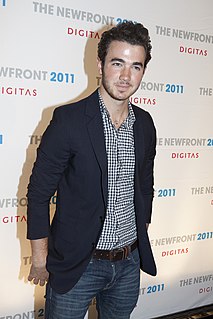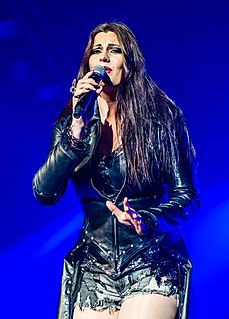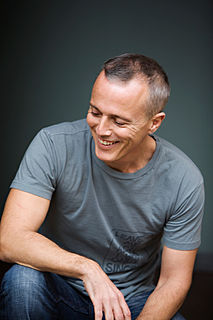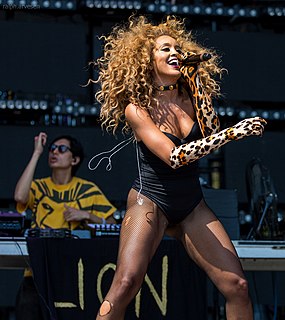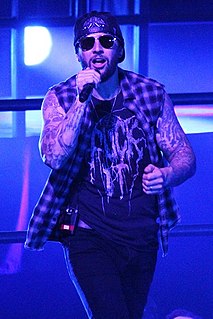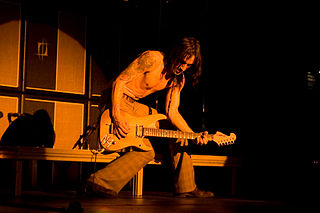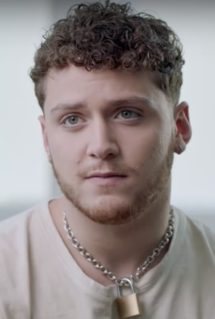A Quote by Kevin Jonas
We were definitely new to the whole music thing. The first album was a real collaborative effort between us, the writers, and the A&R people at Columbia Records. We really worked to find out what our sound was.
Related Quotes
All the songs that were written for that album are just all our first sophomore songs. So they're all from real life. Very sweet and very innocent. I think the theme of the album probably was just that it was our first record. ... Back when we were first making records, you didn't just make the music, you put a great deal of energy into the way it looked, and every word that was written on the whole thing.
Obviously, this is our first album [Begin], so this is our first big body of work that's out there in the world and it really represents our journey, from where we started to now and all the music we created, our range, and all the things that we definitely shared, but weren't able to show our range on a full-scale until this album.
The 'Black Album' was my real first introduction to Metallica. I was, like, 12 or 13 at the time. We were just getting into music, and I liked that album a lot, but it didn't necessarily change my life. But when I started picking up all the other Metallica records, 'Master of Puppets' was the one to me that stuck out with its songwriting.
Don't get me wrong, Carter Smith is an insanely talented photographer, but as a director he approached it more from a story standpoint. He definitely had an interest in communicating the text and the characters first, and he allowed his cinematographer Darren Lew to really find the visuals - of course, he worked with him throughout the entire Jamie Marks Is Dead movie, it was a collaborative effort. While the movie is very visually beautiful, in my opinion, very visually striking, Carter was definitely approaching it from a performance standpoint first.
The cool thing is, when we first did our joint Ring Of Honour-New Japanies Wrestlers, I think that definitely existed. I think the ROH guys were like, "we can't let these New Japan guys outshine us" the new japan guys were ready to make a statement as it was this really big event in America. But the cool thing about this relationship is we've literally become a family now. A lot of us are friends with each. We obviously respect each other.
I've always thought that "punk" wasn't really a genre. My band started in Olympia where K Records was and K Records put out music that didn't sound super loud and aggressive. And yet they were punk because they were creating culture in their own community instead of taking their cue from MTV about what was real music and what was cool. It wasn't about a certain fashion. It was about your ideology, it was about creating a community and doing it on your own and not having to rely on, kinda, "The Man" to brand you and say that you were okay.
I understand why some bands don't like test new songs, but for us it's been very helpful and it hasn't really backfired. I was nervous that our second record was - you know, you could hear the whole thing on YouTube before the album came out because we played it all live, but it ended up being something that people appreciated.
When we started the band, I was really like, "We just want to make a lot of records" - not quite unlike Guided By Voices' schedule. I've always thought that our live thing is what we do best, and having a really robust, big catalog makes for the most interesting live band - especially with people, at this point, traveling to see us night after night. For us to have almost 100 songs to pull from is a really cool thing. The sets can be different. They can be invigorating on an intellectual level. I definitely hope to continue to release records at an accelerated pace.
